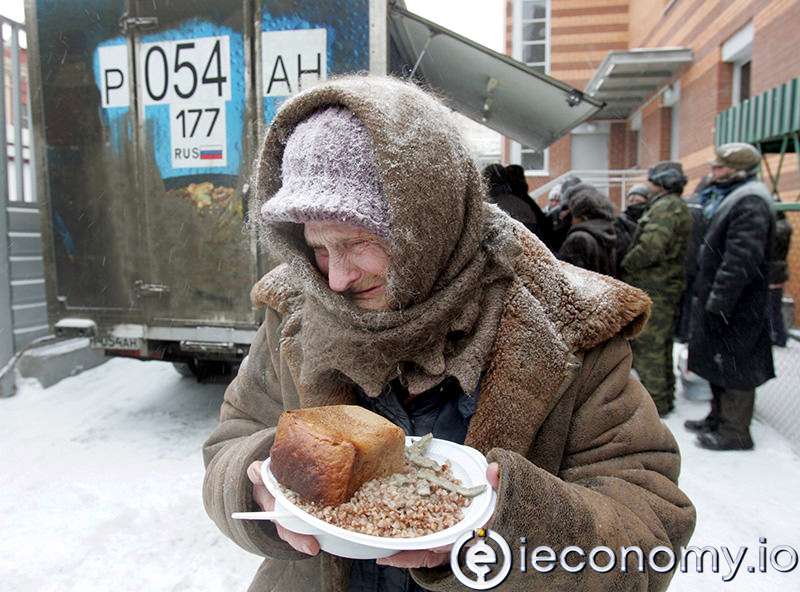4486
0
39 percent of Russians could not afford some basic food
39 percent of Russians could not afford some basic food in the past six months. About 52 percent could not afford to buy clothes or shoes.

Yazar: Tom Roberts
Yayınlanma: 1 Eylül 2021 19:40
Güncellenme: 3 Mart 2026 01:47
39 percent of Russians could not afford some basic food
Russia's real disposable income has stagnated in recent years, coronavirus pandemics and rising inflation in the country have hit businesses hard and raised food and other commodity prices. A July survey by the independent Levada Center showed that 39 percent of Russians could not afford some basic food in the past six months, and more than 50 percent could not afford basic clothing or footwear. Russians experience financial difficulties as a result of a pandemic more often than households in other countries. Nearly two in five Russians avoid buying daily necessities because they can't afford them, according to a survey by the independent Levada Center. Thirty-nine percent of respondents said they have forgiven the purchase of basic groceries in the last six months. About 52 percent could not afford to buy clothes or shoes. Almost 71 percent could not afford larger purchases. In addition, among the 39 percent of Russians already mentioned, who barely eat as socially weaker, as many as three-quarters admitted that they could not afford to buy basic food at all, and only one in ten could afford to buy more. In July 2021, when the survey was conducted, more than a third of respondents (37 percent) saw a significant increase in prices and services (by more than 30 percent during the year). About 31 percent of respondents said they expect prices to rise faster in the next two months than at present, eight percent think prices will not change, and two percent expect prices to fall. According to the state statistical agency Rosstat, annual inflation in Russia reached 6.5 percent in June, the highest rate since August 2016. Earlier this month, Russia's federal antitrust service promised to conduct unplanned inspections of large retail chains over price-raising complaints. The survey involved 1,619 people over the age of 18 and took place from 22 to 28 July this year.İLGİLİ HABERLER





European stocks soared and focus shifted to German retail sales after Powell's speech!

Forex Signal For TRY/USD: Inflation Slowdown in November.

Forex Signal For GBP/USD: Bullish Trend Still Not Breaking While Recovery Continues.

Forex Signal For EUR/USD: Starry US Data Points to Higher Fed Increases.

Forex Signal For BTC/USD: Downside Continues as Bitcoin Recovery Moves Less.
En Popüler Haberler
Yorum Yap
Yorumlar
Henüz yorum yapan yok! İlk yorumu siz yapın...